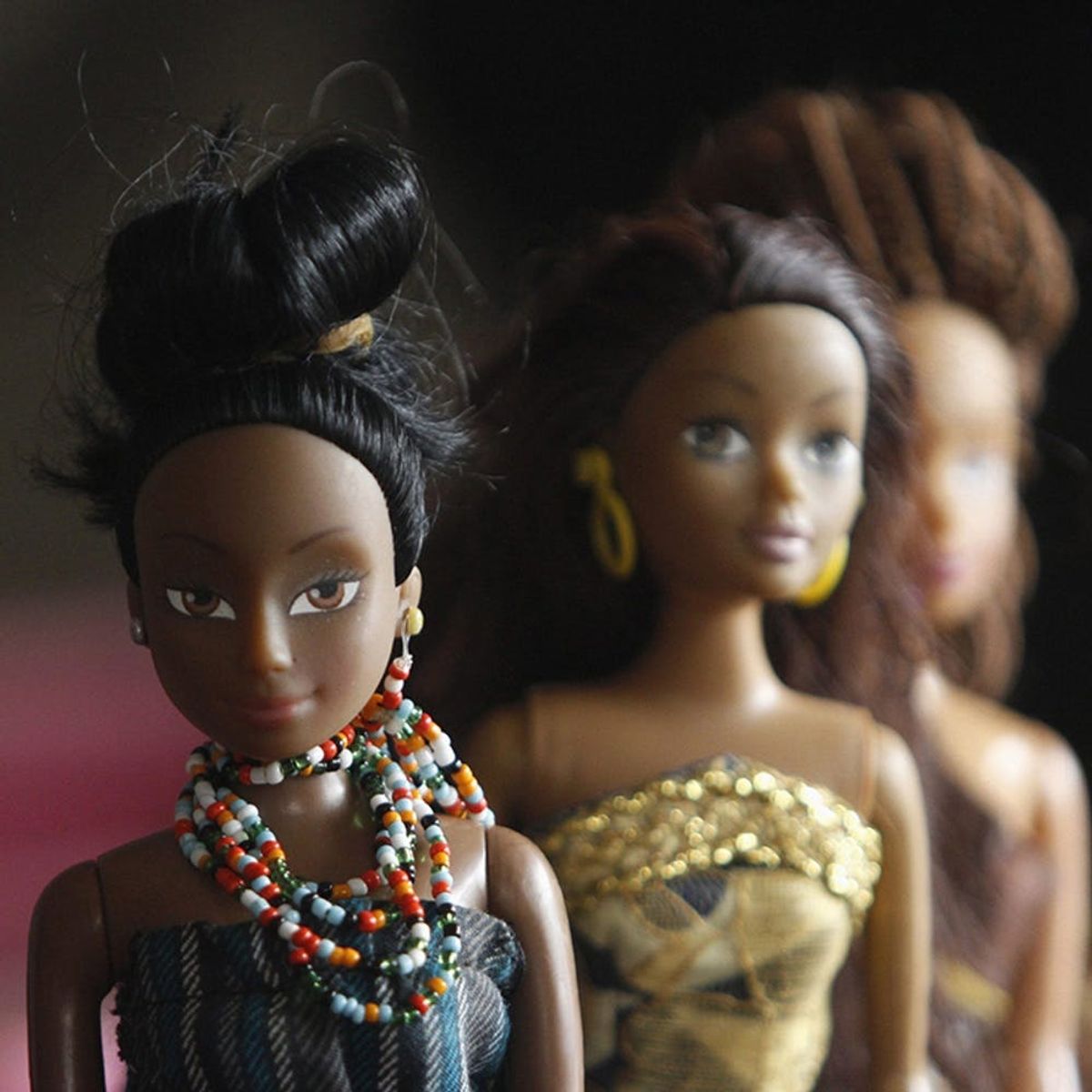See ya later, Barbie.
These African Dolls Are Outselling Barbie

It seems like Malibu Barbie might want to start looking for a different day job. The classic doll has long been criticized for its unrealistic beauty ideals, but now it seems like folks are actually starting to create some change. Last year, Nickolay Lamm created the hugely popular Lammily doll, which aimed to more accurately resemble actual woman (it even came with acne stickers). More recently we also showed you Tree Change Dolls, a project started by Tazmanian artist, Sonia Singh where she strips the excessive makeup off of Bratz dolls to give them fresh, clean makeunders. And now allow us to introduce to you to the Nigerian-based Queens of Africa Doll, who aren’t just competing with Barbie, they’re actually outselling her.
The doll was created by Nigerian entrepreneur, Taofick Okoyo who was looking for a birthday present for his niece when he realized he couldn’t find a black doll anywhere. He then noticed that none of the dolls she currently owned looked anything like her. So like any good entrepreneur, he saw a gap in the market and decided to make his own.
The Queens of Africa Dolls come in various brown skin tones and are dressed in traditional costumes Nigerian girls can identify with. The line of dolls was inspired by the three largest tribes in Nigeria, but is also planning to create specific dolls for other African countries. The company wants to later create music, books and animated series based on the characters.
One aspect where the Queens of Africa dolls does slightly disappoint is in regard to their body measurements. While their skin tone and garments are much more culturally relatable for Nigerian girls, the doll does have an impossibly thin figure and giant Bratz-like eyes. Okoyo says they plan to introduce more diverse body types in the future, although when they attempted this in the past, they didn’t sell successfully.
Okoyo, who also has a daughter of his own tells Fast Company, “I felt it’s very important to have her embrace her skin color and race, and be proud of who she is. I believe this will lead [her to be] a more confident adult.”
If you’re not going to be near any Nigerian toy stores anytime soon, the dolls are available for purchase online for about $40, although they are all sold out at the moment.
What’s your take on these dolls? Share your thoughts in the comments below.
(photos via Reuters)













